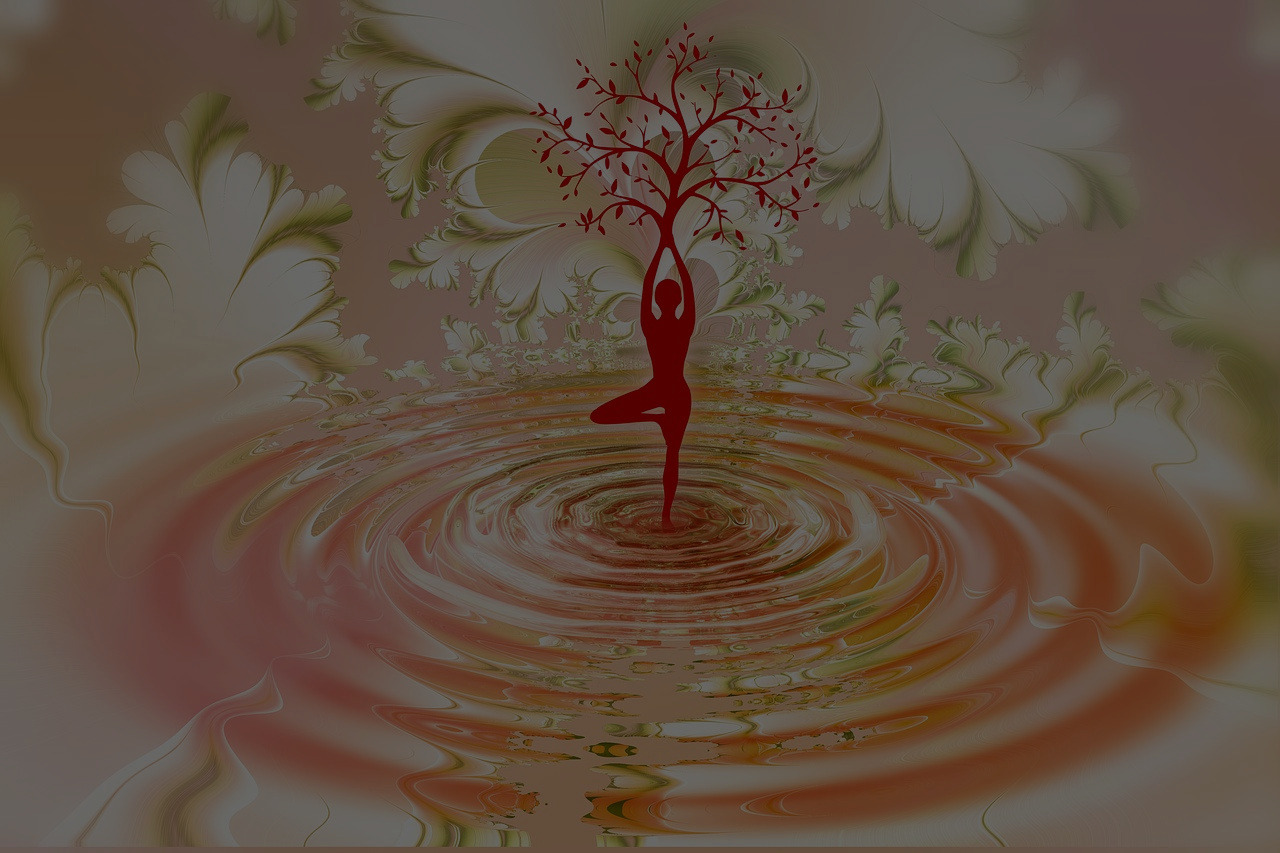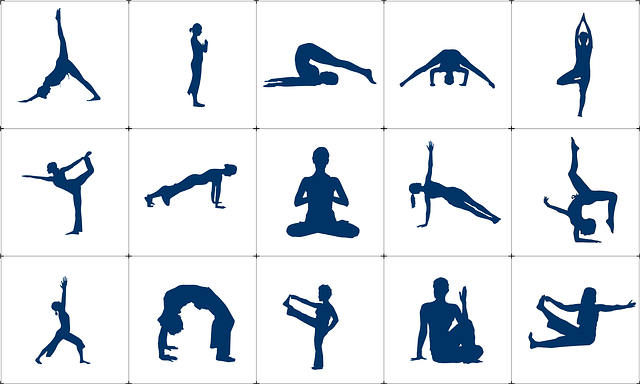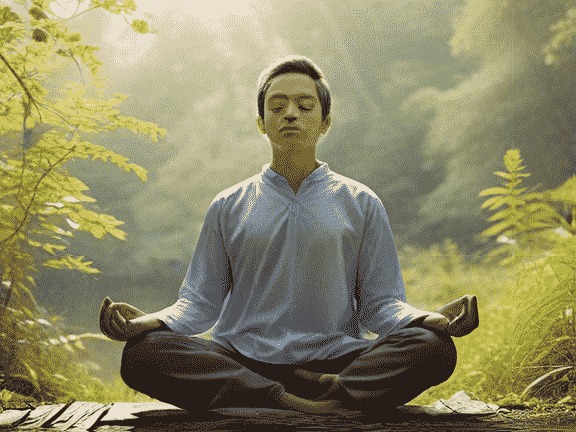Over 40 million adults in the United States struggle with anxiety each year. Mental health issues are becoming more visible and urgent than ever, leading many to seek natural methods of relief. Yoga, a centuries-old practice rooted in mindfulness and movement, has emerged as a powerful ally for emotional healing.
From calming the nervous system to improving focus and emotional balance, yoga offers both immediate and long-term mental health benefits. For those experiencing deeper emotional challenges, it’s important to remember that combining holistic practices with professional help can offer more stability. Cities like Chicago offer excellent mental health care resources, and working with the best psychiatrist Chicago while adopting yoga can enhance recovery and self-awareness.
How Yoga Impacts the Mind

Yoga isn’t just about flexibility or fitness. The physical poses—or asanas—combined with breathwork and meditation create a full-body experience that directly affects the mind. Studies have shown that yoga reduces levels of cortisol, the primary stress hormone. It also boosts the production of GABA (gamma-aminobutyric acid), a brain chemical that helps reduce anxiety symptoms.
When practiced regularly, yoga can increase mindfulness, elevate mood, and improve sleep—all vital components of emotional wellness. Plus, it encourages a strong mind-body connection, teaching us to observe rather than react to emotions.
Top Yoga Poses to Improve Mental Well-being
While any style of yoga can contribute to mental health, some specific poses are known to be especially helpful in calming the mind and soothing the nervous system. These include:
1. Child’s Pose (Balasana)
This resting pose helps release back, shoulders, and chest tension. It also encourages deep breathing, which slows the heart rate and signals the body to relax.
2. Legs Up the Wall (Viparita Karani)
Known as a gentle inversion, this pose reduces anxiety and fatigue. It improves circulation, calms the mind, and can even help with insomnia.
3. Cat-Cow Stretch (Marjaryasana-Bitilasana)
This simple flow between two poses helps relieve stress stored in the spine and enhances breath control, bringing awareness to the present moment.
4. Corpse Pose (Savasana)
Often used at the end of a yoga session, Savasana allows the body and mind to integrate the benefits of practice. It promotes deep relaxation and emotional release.
Breathwork and Meditation
Many mental health gains from yoga come from pranayama (breath control) and meditation. Deep, rhythmic breathing activates the parasympathetic nervous system, reducing heart rate and calming the mind. Alternating nostril breathing or box breathing can help with anxiety and mental clarity.
Meditation, even for just five minutes a day, builds resilience. It helps create distance from overwhelming thoughts and enhances emotional regulation. Guided meditations, body scans, or simple breath awareness exercises are great places to start.
Creating a Consistent Practice
To see results, consistency is key. That doesn’t mean you need to spend hours on the mat. Even a 15-minute daily routine can bring noticeable benefits. Morning yoga can set a calm tone for the day, while evening sessions may help release the stress of daily life.
Joining a local class or following online sessions can help maintain motivation. Apps like Insight Timer, Yoga with Adriene, or Headspace offer guided flows that are accessible for all levels.
Combining Yoga with Other Support Systems
Yoga should not replace therapy or medical treatment, but it can complement traditional care. When paired with support from therapists or psychiatrists, yoga deepens self-awareness and provides practical tools for managing emotions. Some mental health professionals even integrate yoga into their sessions for holistic healing.
READ ALSO: Benefits of Yoga for Seniors in Home Assistance Care in Colorado Springs
Final Thoughts
Yoga’s value for mental health lies in its simplicity. It requires no fancy gear, can be done anywhere, and meets you exactly where you are. Whether managing everyday stress or navigating more serious emotional challenges, yoga empowers you to take charge of your mental well-being—one breath, one pose at a time.



 Anabolic steroids are often linked to muscle growth, strength, and performance enhancement, while yoga is associated with flexibility, mindfulness, and recovery. At first glance, these two seem like complete opposites. But can they actually complement each other in a fitness routine?
Anabolic steroids are often linked to muscle growth, strength, and performance enhancement, while yoga is associated with flexibility, mindfulness, and recovery. At first glance, these two seem like complete opposites. But can they actually complement each other in a fitness routine? Yoga has long been celebrated for its ability to promote physical health, mental clarity, and emotional balance. As practitioners seek ways to enhance their yoga experience, the spotlight turns to supplements supporting energy levels and recovery. One such supplement is Nicotinamide Mononucleotide (NMN), which plays a crucial role in cellular energy production. Understanding how NMN can enhance stamina and recovery is vital for those committed to their yoga practice and overall wellness.
Yoga has long been celebrated for its ability to promote physical health, mental clarity, and emotional balance. As practitioners seek ways to enhance their yoga experience, the spotlight turns to supplements supporting energy levels and recovery. One such supplement is Nicotinamide Mononucleotide (NMN), which plays a crucial role in cellular energy production. Understanding how NMN can enhance stamina and recovery is vital for those committed to their yoga practice and overall wellness.

 Opioid addiction recovery demands a blend of medical treatment and lifestyle changes. Suboxone, a medication combining buprenorphine and naloxone, helps manage withdrawal symptoms and cravings. Yet, true healing often requires more than medicine alone. Yoga, with its focus on mindful movement and breath, offers a powerful complement to Suboxone-based treatment. This holistic approach nurtures both body and mind, fostering resilience during recovery.
Opioid addiction recovery demands a blend of medical treatment and lifestyle changes. Suboxone, a medication combining buprenorphine and naloxone, helps manage withdrawal symptoms and cravings. Yet, true healing often requires more than medicine alone. Yoga, with its focus on mindful movement and breath, offers a powerful complement to Suboxone-based treatment. This holistic approach nurtures both body and mind, fostering resilience during recovery.
 For centuries, people have turned to yoga to strengthen their mind-body connection. Yoga is well known for increasing flexibility, promoting relaxation, and encouraging mindfulness. Now, sexual wellness tools like vibrators are joining the mix to deepen that connection, allowing individuals to foster a more intimate relationship with their own bodies. Integrating both yoga and vibrators can create a powerful synergy, helping people achieve heightened awareness and relaxation.
For centuries, people have turned to yoga to strengthen their mind-body connection. Yoga is well known for increasing flexibility, promoting relaxation, and encouraging mindfulness. Now, sexual wellness tools like vibrators are joining the mix to deepen that connection, allowing individuals to foster a more intimate relationship with their own bodies. Integrating both yoga and vibrators can create a powerful synergy, helping people achieve heightened awareness and relaxation. Did you know that practicing yoga might be a way to improve your dental health? By
Did you know that practicing yoga might be a way to improve your dental health? By 







 Through the years, numerous studies arrived at conclusions that aside from practising good oral hygiene and periodically visiting the dentist, getting into yoga can also help.
Through the years, numerous studies arrived at conclusions that aside from practising good oral hygiene and periodically visiting the dentist, getting into yoga can also help. Engaging in at least 20 minutes of yoga stretching and
Engaging in at least 20 minutes of yoga stretching and 






 Many psychology experts do not reject the idea of combining steroid use when engaging for hours in strenuous physical activities and stretches of
Many psychology experts do not reject the idea of combining steroid use when engaging for hours in strenuous physical activities and stretches of  Still, some who have shown interests in steroid use should have awareness that most of the products available in online stores are synthetic steroids. These are generally man-made medications that sell legally only if supported by a medical prescription.
Still, some who have shown interests in steroid use should have awareness that most of the products available in online stores are synthetic steroids. These are generally man-made medications that sell legally only if supported by a medical prescription.  We all know that Vit. D nutrients are not as easy to source if to support bone health. Still, some synthetic steroid manufacturers sell Vitamin D as
We all know that Vit. D nutrients are not as easy to source if to support bone health. Still, some synthetic steroid manufacturers sell Vitamin D as  Health and fitness experts say that we can manipulate metabolism by strengthening and stimulating the endocrine system. Practicing yoga in addition to engaging in exercise and other forms of physical activities are popular suggestions.
Health and fitness experts say that we can manipulate metabolism by strengthening and stimulating the endocrine system. Practicing yoga in addition to engaging in exercise and other forms of physical activities are popular suggestions. The Adrenal Glands – The endocrine system also produces hormones in the adrenal glands located in the kidney. In addition to metabolism, adrenal hormones are also concerned with regulating blood pressure and the body’s reactions to stress.
The Adrenal Glands – The endocrine system also produces hormones in the adrenal glands located in the kidney. In addition to metabolism, adrenal hormones are also concerned with regulating blood pressure and the body’s reactions to stress.
 In nearly all kinds of religion, a devotee may shave his or head as a rite of passage to become a monk, a nun or a bhakti, as the act denotes renunciation. Religious historians share the same belief that head shaving is an act signifying one’s commitment to turn away from all things worldly and material. Today, head shaving has more benefits and uses other than to signify devotion to a religion.
In nearly all kinds of religion, a devotee may shave his or head as a rite of passage to become a monk, a nun or a bhakti, as the act denotes renunciation. Religious historians share the same belief that head shaving is an act signifying one’s commitment to turn away from all things worldly and material. Today, head shaving has more benefits and uses other than to signify devotion to a religion. Proponents of
Proponents of  Since shaving is one that a person can do on one’s own, people who need to save money can do so by investing in the right head shaving equipment. What we recommend is to check out product information and reviews. While shaving can be a do-it-yourself kind of task, don’t make it obvious. Use the right shaving equipment as there are now modern electric shavers, clippers and trimmers designed and developed especially for head shaving.
Since shaving is one that a person can do on one’s own, people who need to save money can do so by investing in the right head shaving equipment. What we recommend is to check out product information and reviews. While shaving can be a do-it-yourself kind of task, don’t make it obvious. Use the right shaving equipment as there are now modern electric shavers, clippers and trimmers designed and developed especially for head shaving.



